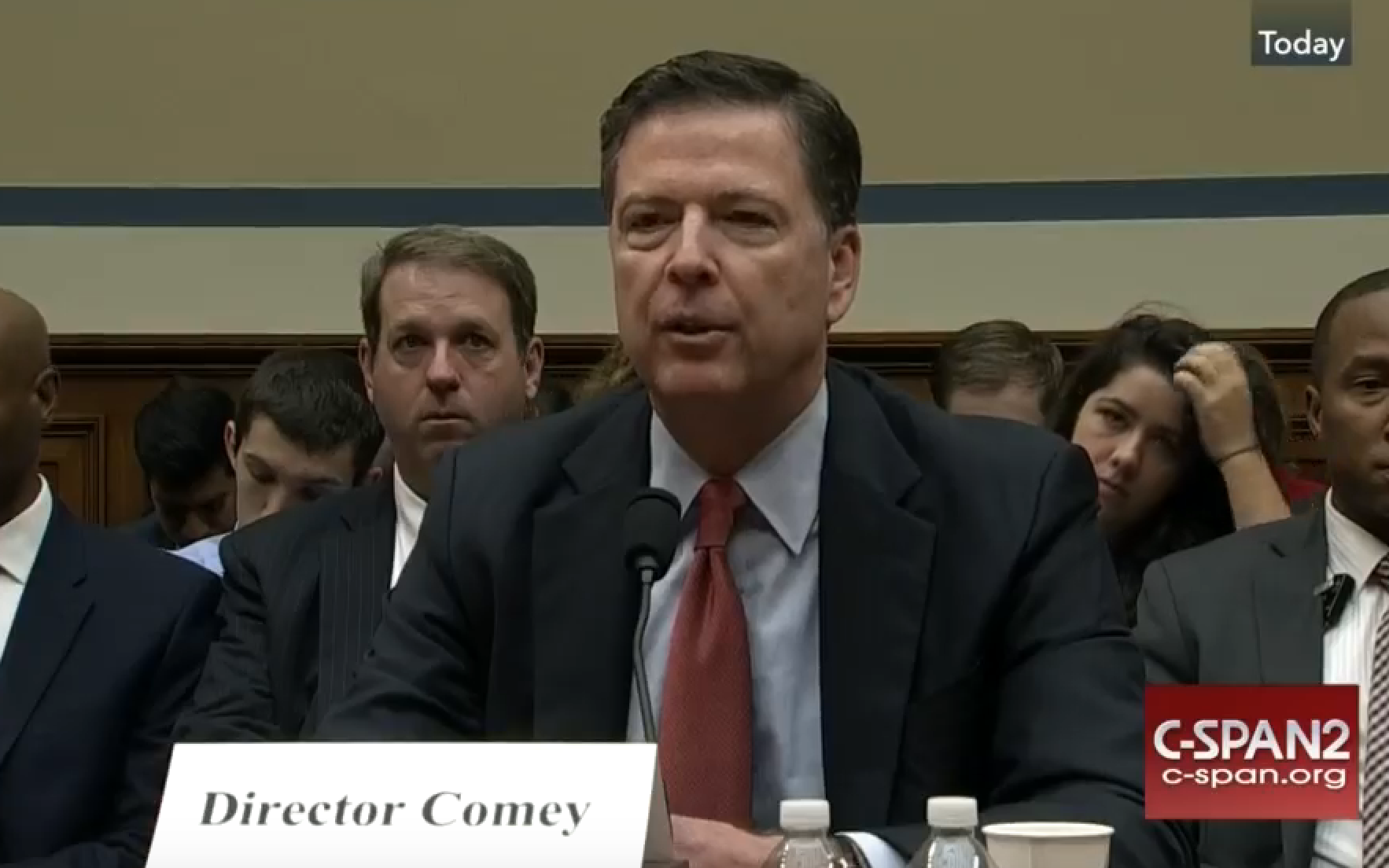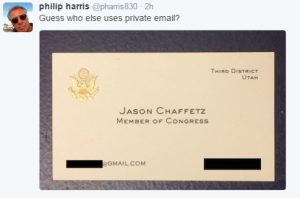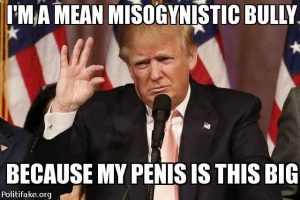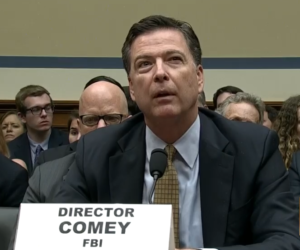WSJ’s Devlin Barrett has a long story he describes as laying bare “tensions that have built for months inside the bureau and the Justice Department over how to investigate someone who could soon be elected president.” It might just as well be described as a catalogue of the ways FBI has gotten out of control.
To show the important background to the decision to get a warrant to access Huma Abedin’s email, I’m going to switch the order of the story from that Barrett uses. Looked at in this way, it becomes clear that by accessing Huma’s email, the FBI may not just have renewed the probably fruitless investigation into Hillary’s email server, but also found a way to access Huma’s emails for use in an investigation of the Clinton Foundation.
FBI ignores Public Integrity orders not to escalate the investigation of the Clinton Foundation
After laying out the recent decision to access Huma Abedin’s email (which I deal with below), Barrett confirms what Comey made obvious with a “neither confirm nor deny” response at his July testimony before the House Oversight Committee (though a flood of leaks had long claimed such an investigation existed).
The FBI has been investigating the Clinton Foundation for over a year.
As Barrett describes it, the case arose because Agents were seeing if a crime was committed, not because they had found evidence that it had:
Early this year, four FBI field offices—New York, Los Angeles, Washington and Little Rock, Ark.—were collecting information about the Clinton Foundation to see if there was evidence of financial crimes or influence-peddling, according to people familiar with the matter.
He describes that in February, when Andrew McCabe got promoted to Deputy Director, he took over oversight of this investigation. (In an earlier article Barrett insinuated that an earlier Terry McAuliffe donation to McCabe’s wife’s state senate campaign presented a conflict, but in this article Barrett provides McAuliffe’s explanation for the donation.) Also in February — Barrett doesn’t say whether McCabe was involved — investigative teams located in Los Angeles, DC, Little Rock, and New York (he doesn’t say whether they were in EDNY or SDNY or both, which is relevant to a later development in the story) presented their case to DOJ’s Public Integrity (PIN) section.
Here’s how Barrett describes that meeting:
Some said that is because the FBI didn’t present compelling evidence to justify more aggressive pursuit of the Clinton Foundation, and that the career anticorruption prosecutors in the room simply believed it wasn’t a very strong case. Others said that from the start, the Justice Department officials were stern, icy and dismissive of the case.
“That was one of the weirdest meetings I’ve ever been to,” one participant told others afterward, according to people familiar with the matter.
Anticorruption prosecutors at the Justice Department told the FBI at the meeting they wouldn’t authorize more aggressive investigative techniques, such as subpoenas, formal witness interviews, or grand-jury activity. But the FBI officials believed they were well within their authority to pursue the leads and methods already under way, these people said.
Mind you, seven paragraphs before describing PIN telling the FBI it would not authorize subpoenas, Barrett described the Los Angeles team having “issued some subpoenas for bank records related to the foundation.” So when he says FBI officials believed they could pursue leads and methods already under way, it may mean they decided they could use the fruit of subpoenas PIN subsequently judged weren’t merited by the evidence.
In July, after DOJ decided not to prosecute anyone on the email server and Comey started blabbing (including his non-denial of the existence of this investigation), FBI “sought to refocus the Clinton Foundation probe,” which sounds a lot like redoubling efforts to find something to investigate Hillary for. (Note, this entire article makes no mention of the June Supreme Court decision throwing out much of former VA governor Bob McDonnell’s conviction, which would have significantly raised the bar for any prosecution of the Clinton Foundation.) McCabe bracketed the DC work focusing on Terry McAuliffe, from which he was recused, and put NY in charge of the rest.
Barrett spends a paragraph airing both sides of a dispute about whether that was the right decision, then describes a (male, and therefore someone besides Loretta Lynch or Sally Yates) senior DOJ official bitching out McCabe for continuing to pursue the Clinton Foundation investigation, especially during the election.
According to a person familiar with the probes, on Aug. 12, a senior Justice Department official called Mr. McCabe to voice his displeasure at finding that New York FBI agents were still openly pursuing the Clinton Foundation probe during the election season. Mr. McCabe said agents still had the authority to pursue the issue as long as they didn’t use overt methods requiring Justice Department approvals.
The Justice Department official was “very pissed off,” according to one person close to Mr. McCabe, and pressed him to explain why the FBI was still chasing a matter the department considered dormant.
Barrett spends several paragraphs airing both sides of what happened next, whether FBI agents were ordered to stand down entirely or whether McCabe said they could continue to investigate within the existing guidelines.
FBI attempts to venue shop to get at Clinton server emails
Even after that order, the Clinton Foundation investigators tried to get more — specifically, all the emails turned over in the email server investigation. When EDNY (as a reminder, that’s where Loretta Lynch was until last year US Attorney) refused, the investigators asked to go get them in SDNY.
In September, agents on the foundation case asked to see the emails contained on nongovernment laptops that had been searched as part of the Clinton email case, but that request was rejected by prosecutors at the Eastern District of New York, in Brooklyn. Those emails were given to the FBI based on grants of partial immunity and limited-use agreements, meaning agents could only use them for the purpose of investigating possible mishandling of classified information.
Some FBI agents were dissatisfied with that answer, and asked for permission to make a similar request to federal prosecutors in Manhattan, according to people familiar with the matter. Mr. McCabe, these people said, told them no and added that they couldn’t “go prosecutor-shopping.”
Several comments on this: First, McCabe did the right thing here in refusing to let his agents venue shop until they got their way. I hope he would do the same in a less visible investigation where senior DOJ officials were chewing him out for conducting the investigation in the first place.
Second, consider how the timing of this coincides with both leaks about the immunity agreements, Jason Chaffetz’ inquiry into the same, and two sets of email server related materials. As one key example, on October 5, just weeks after McCabe told his Agents they couldn’t go “prosecutor-shopping” to get to the emails released in the email server probe, Republicans were releasing details of their in camera review of the terms of the immunity agreements used to deny the Clinton Foundation investigations access to the emails. We should assume that some entities within the FBI are using all angles, using Chaffetz’ investigations to publicize decisions that have thwarted their investigation.
Did FBI Agents review the content of Huma Abedin’s email without a warrant?
So sometime in September, the Clinton foundation team was told they couldn’t have emails associated with the server investigation that were tied to immunity agreements. On October 3 (per the NYT), FBI agents seized a number of devices, including a laptop used jointly by Anthony Weiner and Huma Abedin with a warrant permitting just the investigation of Weiner’s alleged sexting of an underaged woman (curiously, Barrett says they were permitted to look for child porn). Shortly thereafter, they found found emails from accounts, plural, of Huma Abedin on the laptop. Multiple reports suggest those emails may be duplicative of the ones that FBI had just been told they couldn’t access because of the immunity agreements tied to other devices.
There’s no reason to believe FBI found those potentially duplicative emails because they were prohibited from accessing the ones turned over voluntarily as part of the email server probe (in any case, they are presented as different investigative teams, although the description of this sprawling Clinton Foundation investigation may explain why earlier leaks said 147 people were part of the Clinton investigation); it’s just one of those coinkydinks that seem to plague the Clintons.
At that point, per Barrett, “Senior FBI officials decided to let the Weiner investigators proceed with a closer examination of the metadata on the computer, and report back to them.” Early last week (so two or three weeks later), some asked how that weeks-long review of the Huma emails (allegedly just the metadata) was going.
“At that point, officials realized that no one had acted to obtain a warrant, these people said.”
In other words, for several weeks, FBI has been nosing around those emails without court authorization to do so in conjunction with the email server investigation (which may or may not have been formally closed). If they really stuck to metadata, that’s no big deal under Third Party rules. If they did peek — even at subject lines — then that may be a bigger problem.
Only then did the Weiner investigators compare notes with the Hillary investigators and decide the emails were relevant. Barrett doesn’t answer the obvious question: how did the Weiner investigators determine these emails might be relevant and did they really just review only metadata? Given all the stories to FBI friendly sources claiming Comey — and implying no one — has seen the content of the email, I suspect the answer is Weiner investigators went beyond metadata.
The background Barrett provides gives more significance to FBI’s decision to (perhaps belatedly) obtain a warrant to get Huma’s email and to Comey’s highly inappropriate magnification of it. Not only have they reopened (or renewed — reports on this are still all over the map on this point) the email investigation, but they’ve also created a virgin birth for emails that the Clinton foundation investigators tried — and were willing to venue shop — but failed to get.
FBI leaking has neutralized DOJ’s control over the Bureau
This story shows that FBI has tried a number of methods to defy PIN advice to drop the investigation into the Clinton Foundation.
I don’t know whether the investigation into the Clinton Foundation has merit or not (though given Barrett’s explanation, it does seem that some in FBI were looking for a crime rather than looking to solve one).
But I do know that if FBI agents operate outside of bounds on their power, they constitute a grave threat to the rule of law.
And Barrett’s article suggests at least three ways they appear to have done just that:
- Fiddling with investigative guidelines of the DIOG (by using subpoenas without the appropriate level of investigation and authority)
- Attempting to venue shop to get permission to access evidence they were told they couldn’t have
- Leaking promiscuously, in clear violation of the rules, to bring political pressure including on Comey to conduct an investigation their supervisors had told them to either limit or halt
That promiscuous leaking, of course, includes this article, which relied on a great number of sources, almost none of whom should be speaking about this investigation. Don’t get me wrong — it’s great reporting on Barrett’s part. But it also serves the purpose of airing the claim that McCabe, PIN, and DOJ generally have thwarted an investigation into the Clinton Foundation that some at FBI believe has merit.
In addition, I’ve got questions about whether they read Huma’s email when they were supposed to just be looking at metadata.
Whatever else Comey’s totally inappropriate behavior reflects, his justification for doing so because it otherwise might leak suggests he doesn’t have control over his agency. Though given his coy response to Chaffetz in July, I do wonder whether he isn’t rooting for the Clinton foundation investigation to proceed; whatever else he is, Comey is a master of using the press to win political fights.
And remember, the FBI (under Comey) has undermined one of the few irreproachable entities that might fix this sorry state of affairs. It has refused, now backed by an OLC opinion, to give DOJ’s Inspector General the unfettered right to investigate things like grand jury proceedings (though given that no grand jury was used in these cases, it might be harder to keep them out here). So if Patrick Leahy were to ask Michael Horowitz to investigate whether FBI acted inappropriately in these related investigations — and he should! — FBI might be able to withhold information from the IG.
A bunch of people who have unquestioned faith in the goodness of DOJ — now including Eric Holder, the guy who couldn’t prosecute a single criminal bank — have been, rightly, scolding Comey for his actions. But they have largely remained utterly silent about the runaway agents at the FBI, both about their obvious leaking and now about their efforts to sustain this investigation in defiance of at least some of the chain of command, including career prosecutors who should be fairly insulated from any political influence that someone like Lynch might respond to.
As I said, I’m agnostic about the investigation of the Clinton Foundation. I’m not agnostic on the importance of keeping FBI firmly within the bureaucratic bounds that prevents them from acting as an abusive force.
They seem to have surpassed those bounds.











